Books on the Wall blog posts featuring books quotes in either graphical or deep dive format.
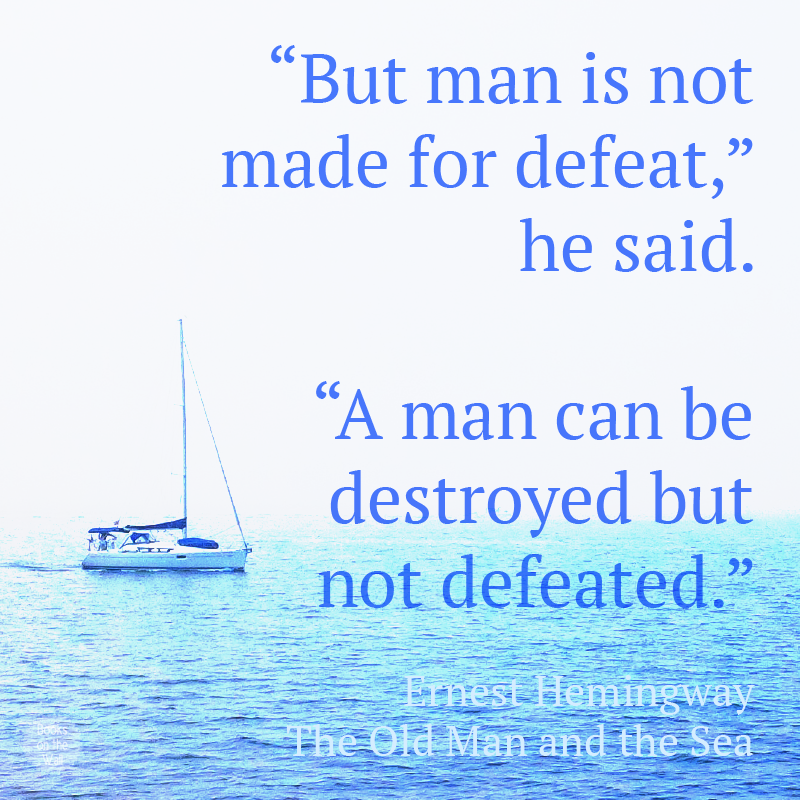
This Ernest Hemingway quote comes from his acclaimed short novel The Old Man and the Sea. The Old Man and the Sea by Ernest Hemingway Written in 1951 during a stay in the Bahamas, The Old Man and the Sea tells the story of an aging fisherman named Santiago and his quest to break his unlucky fishing streak by catching a large marlin. Santiago fights delirium and sharks in his attempt to wrangle the large marlin and bring it home. The Old Man and the Sea won the Pulitzer Prize for Fiction in 1953. One year later, Hemingway was awarded the […]
Continue Reading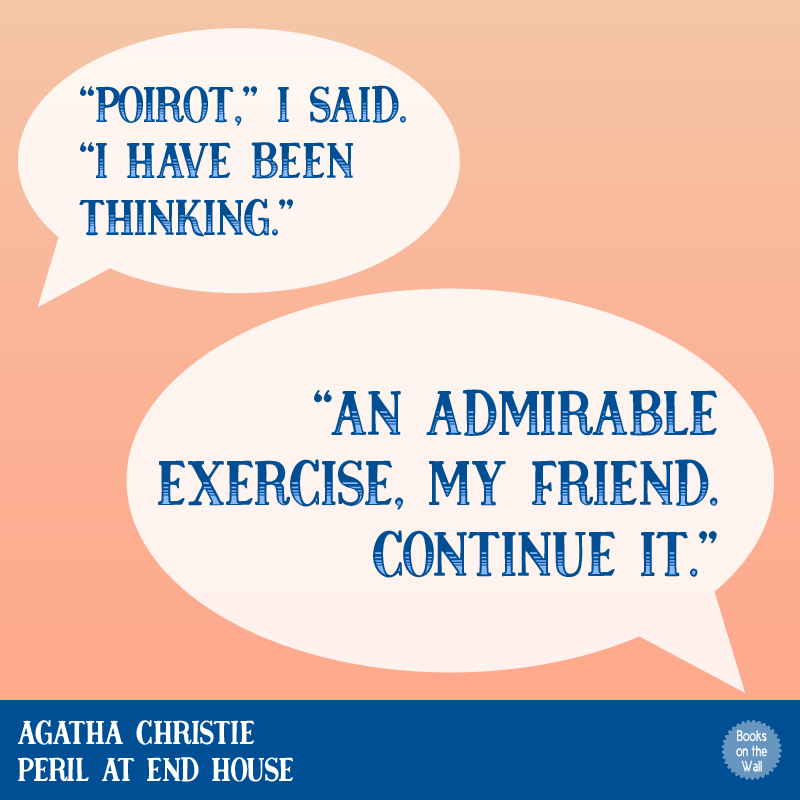
This Agatha Christie quote comes from her 1932 book, Peril at End House. Peril at End House by Agatha Christie Like most of Agatha Christie’s books, Peril at End House is a work of detective fiction. It was her fourteenth published novel under her own name. It is the sixth book to center on one of Christie’s most famous protagonists, Hercule Poirot, along with Inspector Japp and Arthur Hastings. In Peril at End House, Poirot is out to save his new young acquaintance Magdala “Nick” Buckley, who he is convinced is a target for murder. The name of the book comes from […]
Continue Reading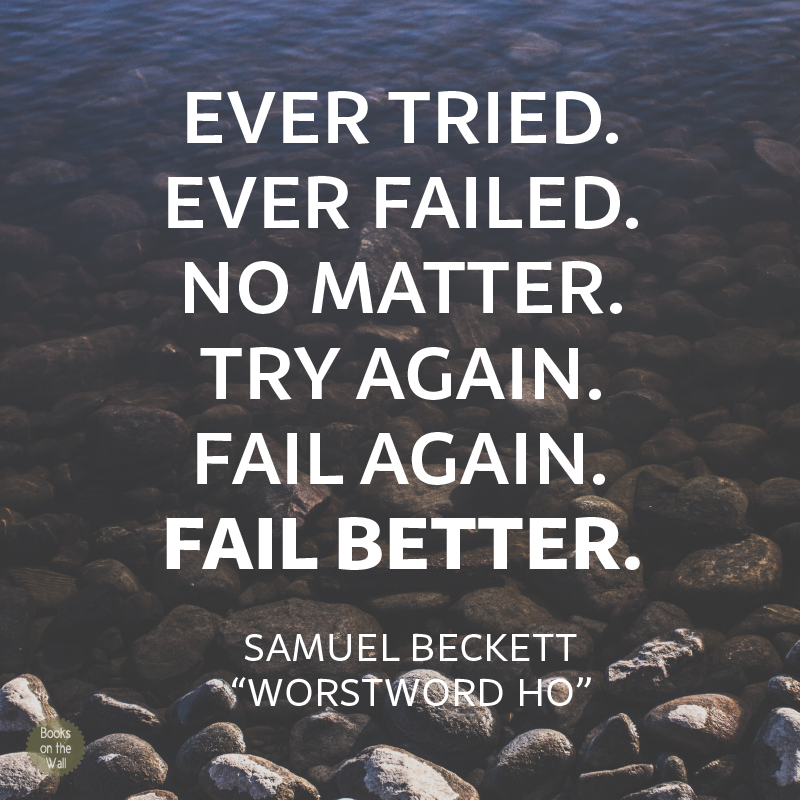
Even if you aren’t involved in tech, entrepreneurship, lifehacking, or other such digital-age ubiquities, you’ve probably heard the most famous part of this Samuel Beckett quote: “Fail better.” The “Fail Better” Quote by Samuel Beckett The “fail better” quote was originally published in Samuel Beckett’s short piece of prose entitled Worstward Ho!, his second-to-last work ever published. The full Samuel Beckett quote reads like this (and by “full,” we really mean the part that gets repeated): “Ever tried. Ever failed. No matter. Try again. Fail again. Fail better.” By itself, you can probably understand why this phrase has become a mantra of […]
Continue Reading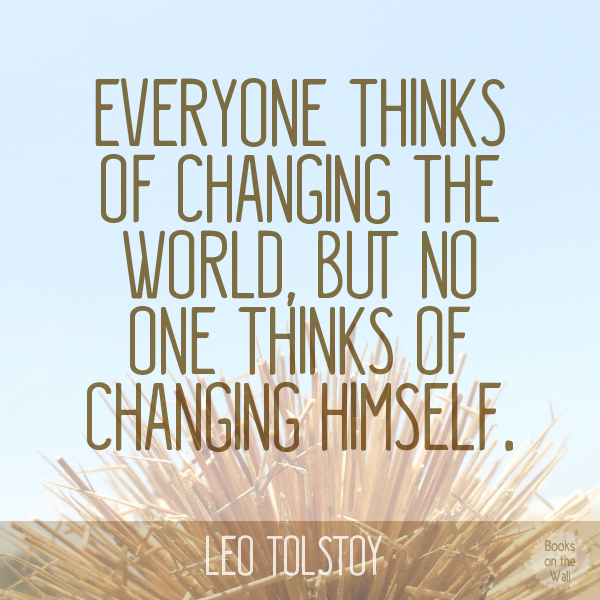
This Leo Tolstoy quote comes from “Three Methods Of Reform” in Pamphlets: Translated from the Russian (1900). A longer variant of the quote goes like this: There can be only one permanent revolution — a moral one; the regeneration of the inner man. How is this revolution to take place? Nobody knows how it will take place in humanity, but every man feels it clearly in himself. And yet in our world everybody thinks of changing humanity, and nobody thinks of changing himself. Although Tolstoy is perhaps most well known for his lengthy works of fiction, he was a prominent social and […]
Continue Reading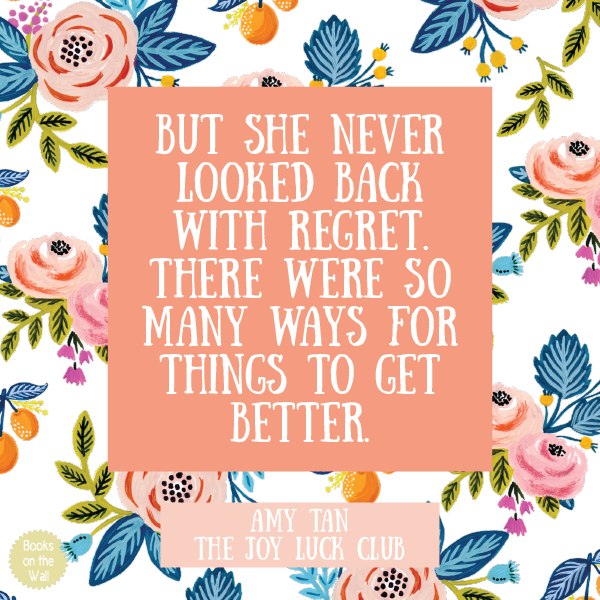
This Amy Tan quote is taken from her bestselling novel, The Joy Luck Club. The Joy Luck Club by Amy Tan Published in 1989, The Joy Luck Club focuses on the life experiences of four Chinese American families living in San Francisco in the mid 1900s. More specifically, the novel focuses on the complex relationships between three Chinese immigrant mothers and four American-born daughters. The novel reads like a collection of short stories; it plays off of the structure of a mahjong game and includes phrases about the game before each vignette. The Joy Luck Club was Amy Tan’s first […]
Continue Reading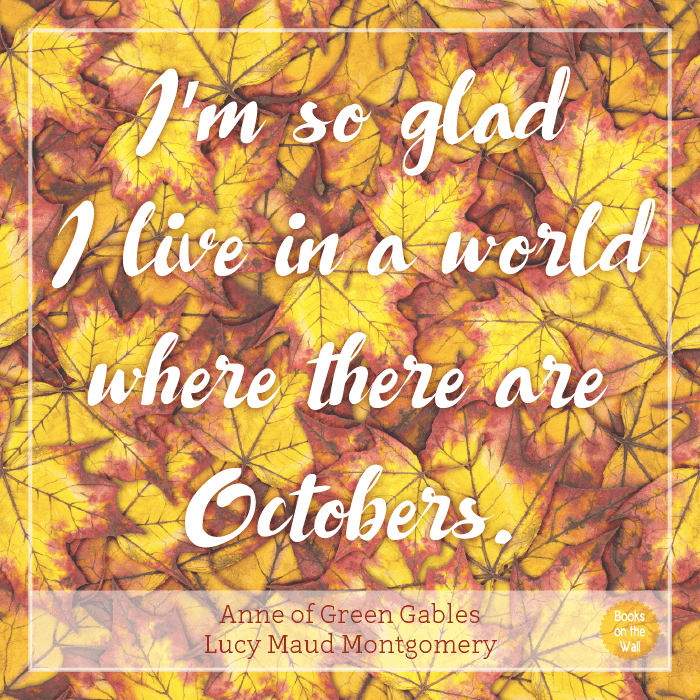
Perfect for this time of year, this Anne of Green Gables quote captures our love of all things autumn. Anne of Green Gables by Lucy Maud Montgomery Published in 1908, Anne of Green Gables follows the life of young orphan girl Anne Shirley, who moves to a farm on Prince Edward Island. Although Anne was sent there mistakenly, the kind Marilla and Matthew Cuthbert take her in and agree to raise her. The title of the book comes from the name of the Cuthberts’ Avonlea farm, Green Gables. Since its publication, Anne of Green Gables has become one of the […]
Continue Reading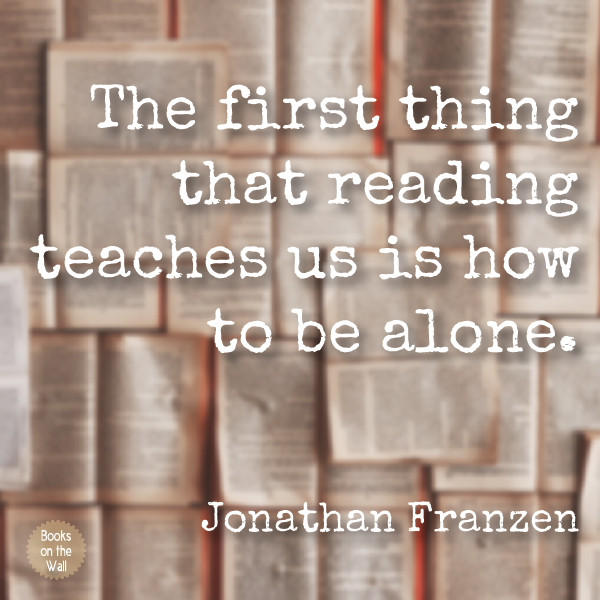
Today’s Words Wednesday features a Jonathan Franzen quote from his essay collection entitled, fittingly, How To Be Alone. How To Be Alone by Jonathan Franzen Published in 2002, How To Be Alone is a collection of fourteen essays ranging in topic from the role of the novel in contemporary culture to the painful loneliness of Alzheimer’s. Many of the essays had been originally published in magazines such as Harper’s Magazine and The New Yorker. One of the essays, “My Father’s Brain,” was nominated for a 2002 National Magazine Award and was the basis for the character of Earl Lambert in his […]
Continue Reading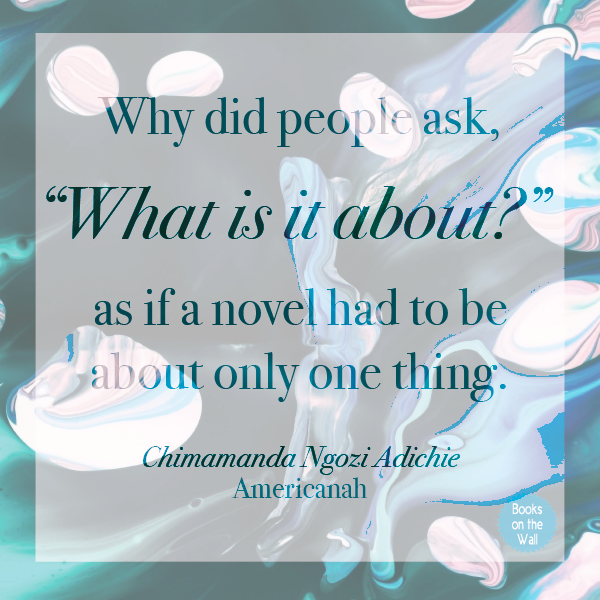
This Chimamanda Ngozi Adichie quote comes from her most recent novel, Americanah. Americanah by Chimamanda Ngozi Adichie Published in 2013, Americanah follows the lives of Ifemelu and Obinze, a young Nigerian couple who leave military-ruled Nigeria in search of better opportunity. Ifemelu ends up as a renowned blogger who writes about race in America; Obinze struggles as an undocumented immigrant in England. (Ifemelu’s blog, Small Redemptions of Lagos, is actually published on Adichie’s own website, though there are no posts.) Through the story of Ifemelu and Obinze, their life together and their lives apart, Americanah explores ideas of national, cultural, racial, and personal […]
Continue Reading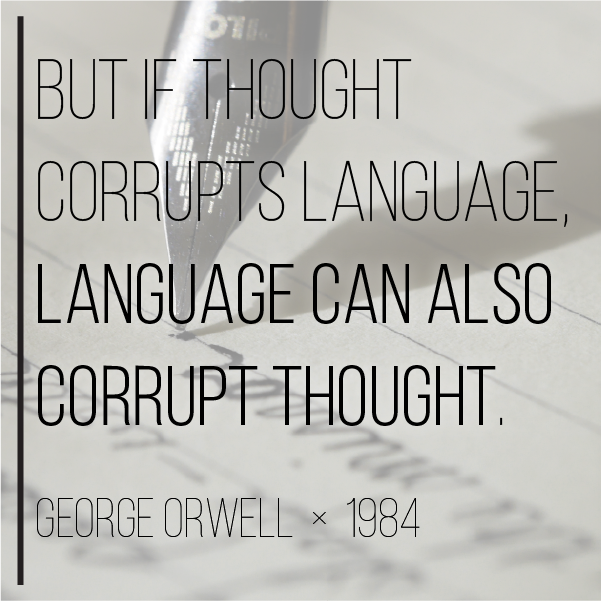
1984 by George Orwell This George Orwell quote comes from his acclaimed novel 1984 (sometimes written as Nineteen Eighty-Four). Published in 1949, 1984 is a dystopian novel that explores life under a totalitarian government that controls everything and watches everyone. “But if thought corrupts language, language can also corrupt thought.” -George Orwell quote from 1984 Orwell’s Legacy It’s almost impossible to overestimate the lasting influence that 1984 has had on popular culture. Many common words were first introduced by Orwell in 1984, including doublespeak, thoughtcrime, telescreen, memory hole, and of course Big Brother. The author himself has even entered into the lexicon […]
Continue Reading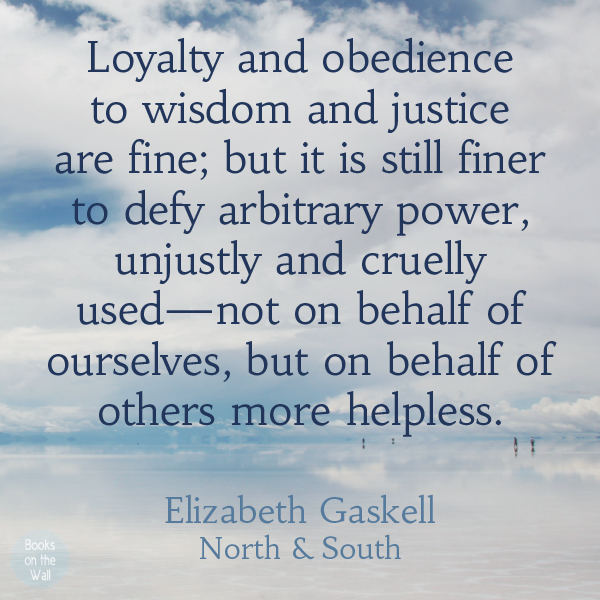
North and South Book (1854) This quote comes from Elizabeth Gaskell’s acclaimed novel North and South. Gaskell’s third novel, North and South was originally published in serial form in Charles Dickens’ literary magazine Household Words from September 1854 to January 1855. Like many Victorian novels, North and South is a social novel that sought to expose the plight of the working poor in England. The novel follows the main character Margaret Hale as she moves from the tranquility of the rural South to a cramped, dirty, and rapidly industrializing mill town in the North. Margaret is forced to face her own prejudices […]
Continue Reading